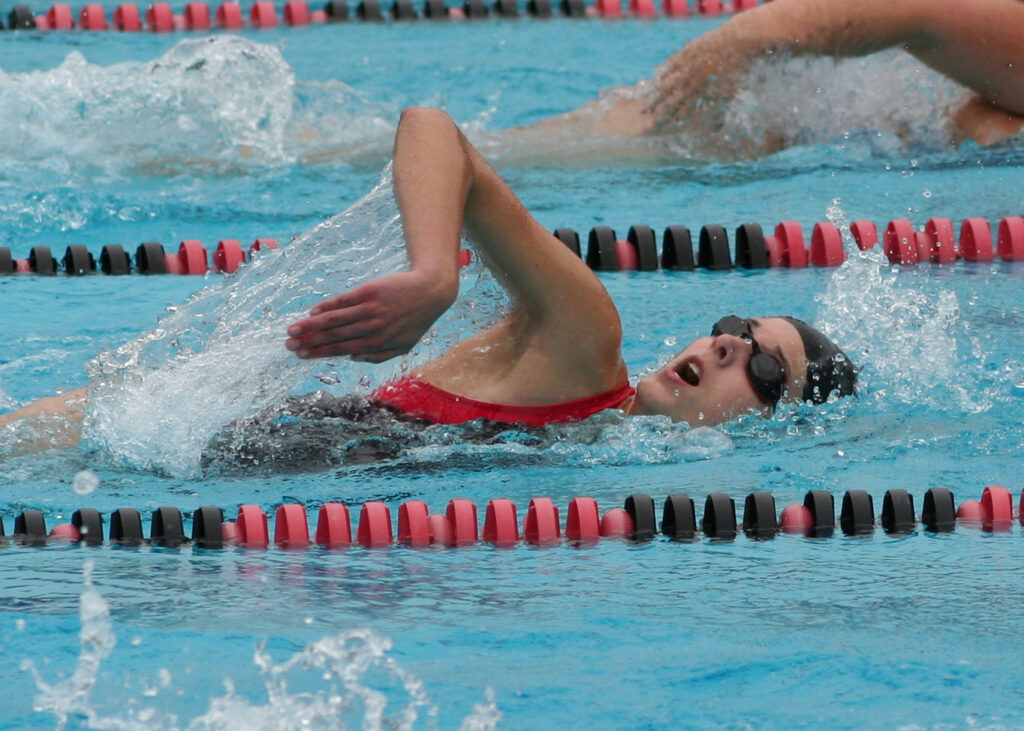A federal judge issued a decision Thursday to uphold a West Virginia law that disallows student athletes that are biologically male from competing in women’s sports.
West Virginia Judge Joseph R. Goodwin ruled that the state’s 2021 “Save Women’s Sports Bill,” which defines “girl” and “woman” as “an individual whose biological sex determined at birth is female,” in relation to student sports, is lawful.
Goodwin determined the definition of “biological sex” in the bill is “constitutionally permissible,” as it is “substantially related to its important interest in providing equal athletic opportunities for females.”
“I recognize that being transgender is natural and is not a choice,” he wrote. “But one’s sex is also natural, and it dictates physical characteristics that are relevant to athletics.”
Goodwin decided that West Virginia is allowed to regulate girls’ sports on ground that “sex, and the physical characteristics that flow from it, are substantially related to athletic performance and fairness in sports.”
The ACLU filed the lawsuit against the state on the behalf of a transgender girl who wanted to compete with female peers in middle school cross-country running.
They argued that 11-year-old plaintiff’s rights were violated under 1972’s gender equality legislation Title IX, which Goodwin rejected.
“Acting to prevent transgender girls, along with all other biological males, from playing on girls’ teams is not unconstitutional if the classification is substantially related to an important government interest,” he wrote.
“The fact is … that a transgender girl is biologically male and, barring medical intervention, would undergo male puberty like other biological males.”
“And biological males generally outperform females athletically,” he ruled.
Goodwin said he had “no doubt” that the bill was “aimed to politicize participation in school athletics for transgender students,” and that the young plaintiff “like all transgender people, deserves respect and the ability to live free from judgment and hatred for simply being who she is.”
The ACLU of West Virginia is determining their next steps, as the federal judge’s opinion overruled their July 2021 preliminary injunction to bar the law from taking effect.
West Virginia Attorney General Patrick Morrisey is thrilled about the outcome.
“This is not only about simple biology, but fairness for women’s sports, plain and simple,” he told Fox News in a statement.
“Opportunities for girls and women on the field are precious and we must safeguard that future,” Goodwin continued.
“Protecting these opportunities is important, because when biological males compete in a women’s event women and girls lose their opportunity to shine.”
On the flip side of this issue, female-to-male transgender collegiate swimmer Iszac Henig has quickly gone from the top rated competitor on Yale’s women’s swimming team to nearly the worst in the men’s category.
Henig competed alongside transgender NCAA Champion swimmer Lia Thomas in the women’s category last year, before getting a double mastectomy and taking hormones to compete with the men as a senior.
The 22-year-old athlete got a rude awakening in November, when the once top women’s swimmer, placed 79th out of 83 competitors at men’s swimming meet.
He only managed to beat out a one-armed swimmer and three others who were not well versed in the specialized swimming stroke.
“I wasn’t the slowest guy in any of my events, but I’m not as successful in the sport as I was on the women’s team,” Henig wrote in a New York Times article this week.
For the college swimmer, competing as a trans athlete’s not about winning, it’s about being able to play.
“Competing and being challenged is the best part. It’s a different kind of fulfillment,” Henig stated.
“And it’s pretty great to feel comfortable in the locker room every day.”
“I believe that when trans athletes win, we deserve to be celebrated just as cis athletes are. We are not cheating by pursuing our true selves — we have not forsaken our legitimacy,” the Yale student continued.
“Elite sports are always a combination of natural advantage or talent and commitment to hard work.”
“There is so much more to a great athlete than hormones or height. I swim faster than some cis men ever will,” Henig concluded.

